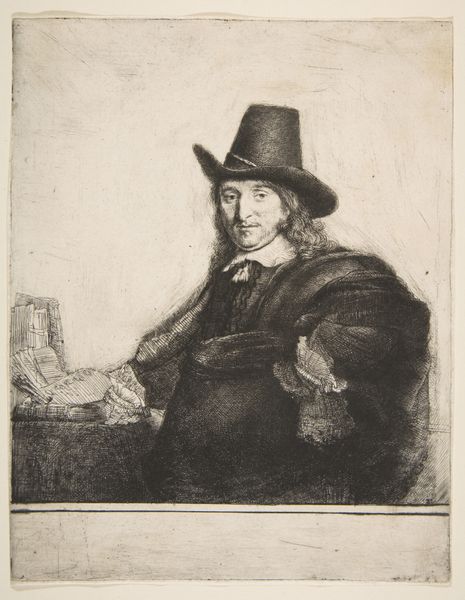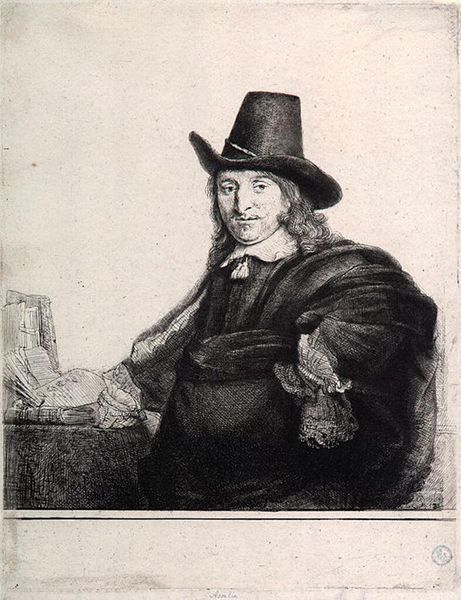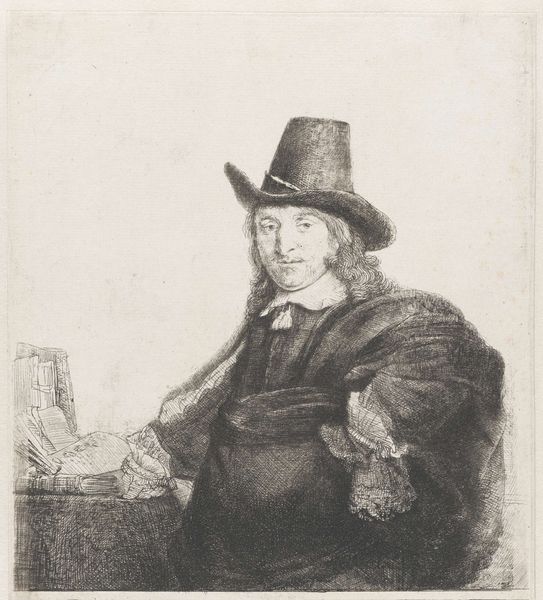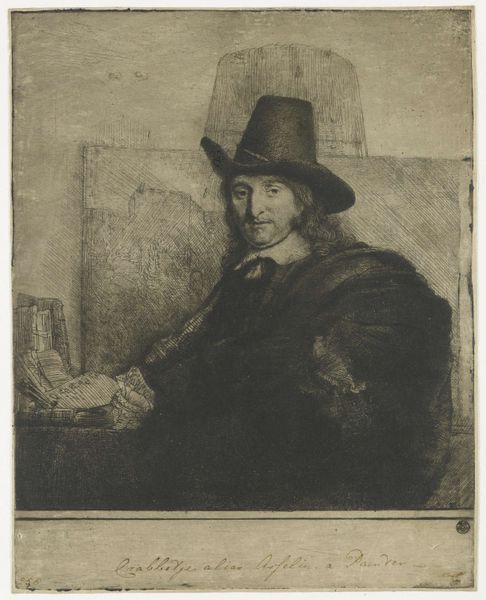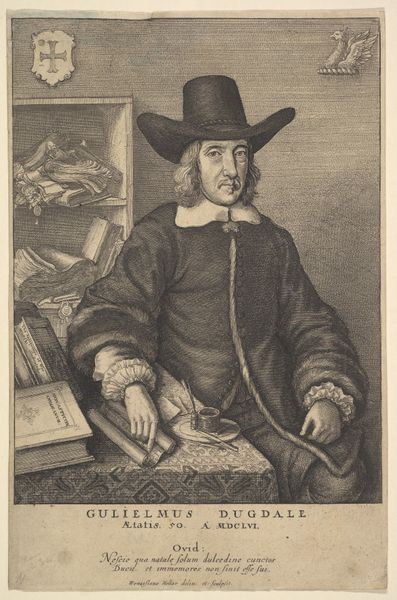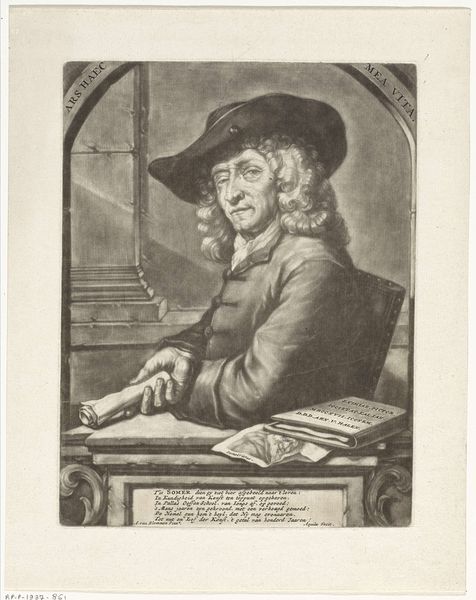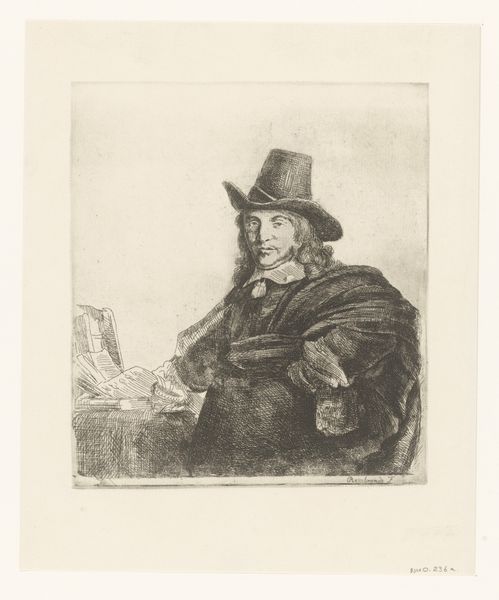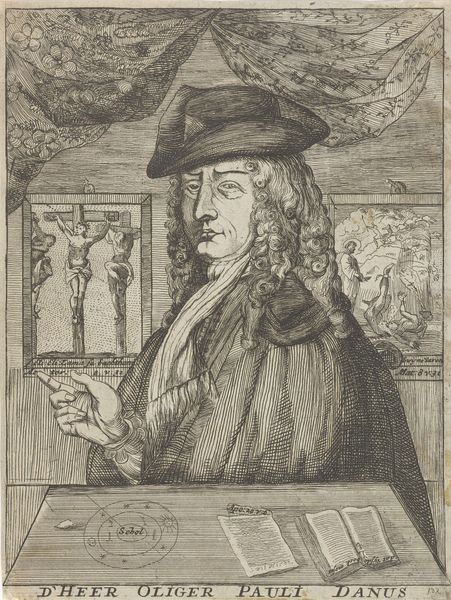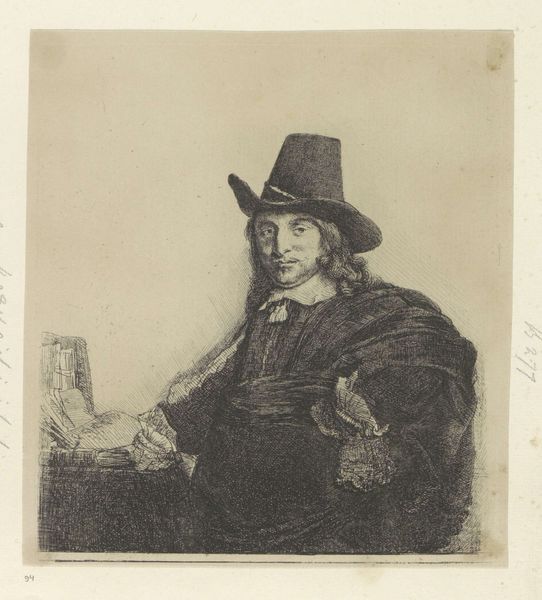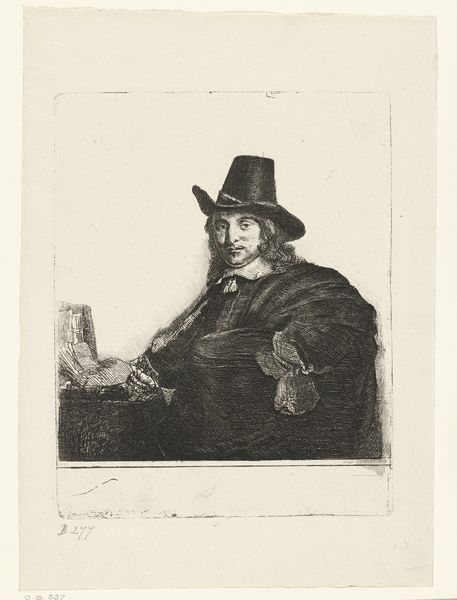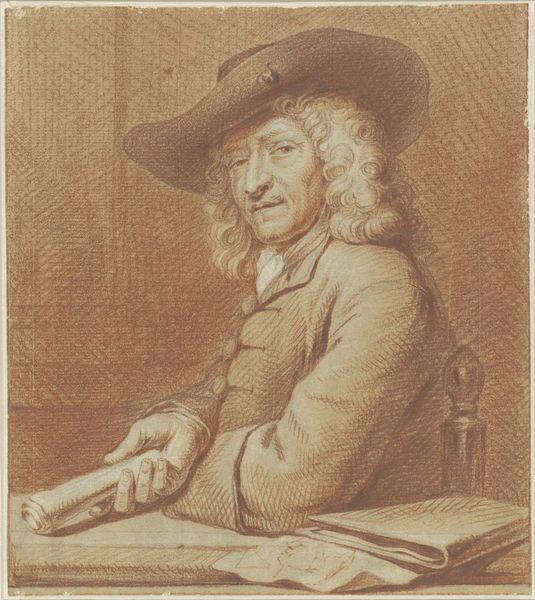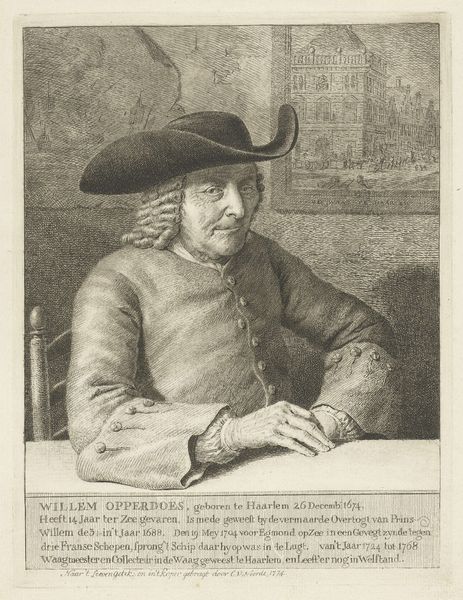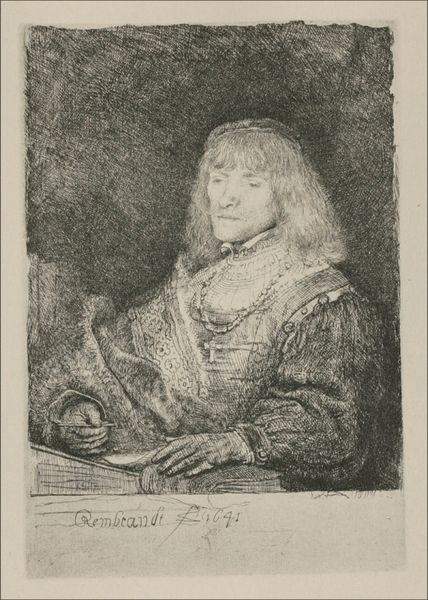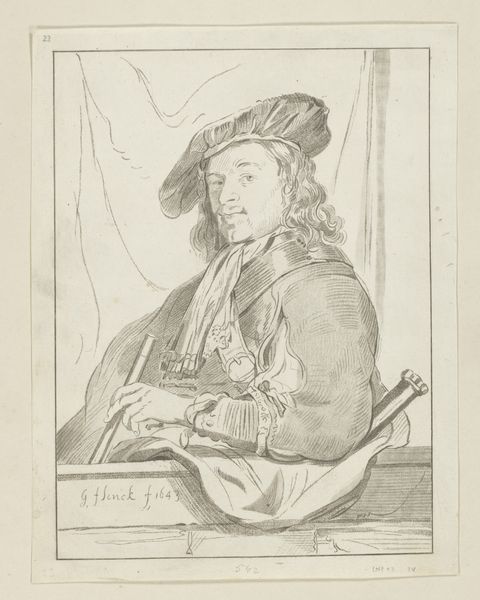
drawing, etching, graphite
#
portrait
#
drawing
#
etching
#
pencil drawing
#
graphite
#
charcoal
#
graphite
Dimensions: height 218 mm, width 170 mm
Copyright: Rijks Museum: Open Domain
This is Rembrandt van Rijn's etching of Jan Asselijn. Created during the Dutch Golden Age, it depicts a prominent painter of the time. What does it mean for one artist to capture another? This work exists within a society where artistic skill was climbing the ranks of social mobility, yet, not all were welcome. Rembrandt, celebrated and successful, was also no stranger to controversy due to his personal life and financial struggles. Here, the gaze of Asselijn feels both confident and knowing. The etching technique, with its intricate lines, captures the textures of his clothing and the details of his face, giving us a sense of his presence. The choice to portray Asselijn, a respected figure, speaks to the artistic community of the time. Ultimately, this portrait is not just a representation of an individual, but a glimpse into the complex social and cultural fabric of 17th-century Netherlands. It invites us to reflect on the relationships between artists, their subjects, and the world they inhabited.
Comments
No comments
Be the first to comment and join the conversation on the ultimate creative platform.
